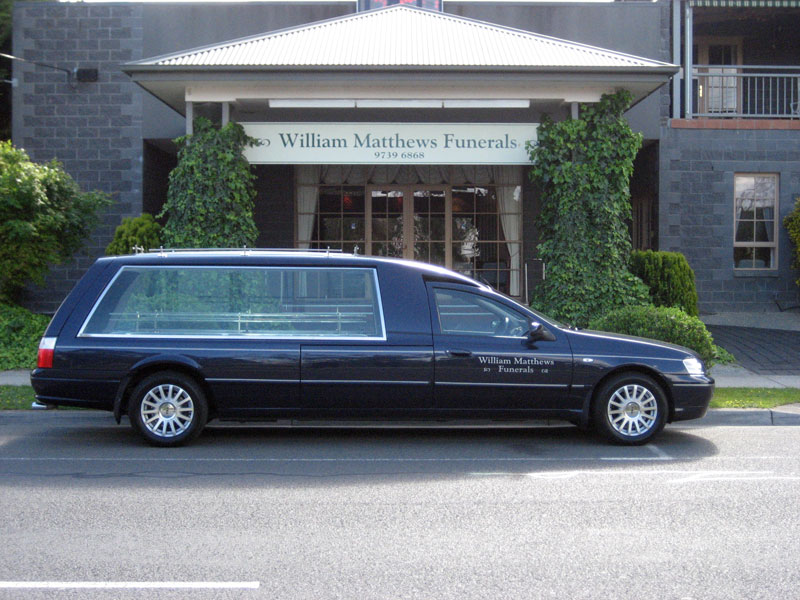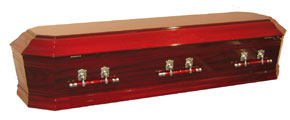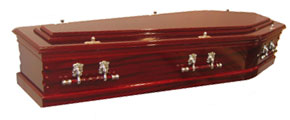Frequently asked questions
The funeral process can be stressful and people will have questions surrounding it. Read through the frequently asked questions our team has collected over our years of experience in supporting our community.


What is embalming?
Professional embalming has been in use for over one hundred years in Australia and is practiced in order to provide the deceased with the highest level of dignity and respect.
Embalming is the chemical treatment of a body which achieves three things: Sanitation: Presentation: and Preservation of the body. This is carried out by our trained embalmer. Embalming may be needed when:
- There is a longer than average delay between death and the funeral.
- The deceased needs to be transferred interstate or overseas.
- The service calls for an above ground burial in a crypt or vault.
- To improve the appearance of the deceased for a viewing.
If you have any questions about embalming or other mortuary procedures, pleases call us to discuss these matters further with you.
Should there be a viewing?
Viewing the deceased is a personal decision and in past experience we have found it has many benefits. A viewing not only helps family and friends to face the reality of death but it also allows for quiet times of reflection and goodbyes. A viewing can be arranged to take place a day leading up to the funeral or on the day of the service
What allowances exist for funeral expenses?
Centrelink offers the following bereavement payments to Australian residents. Entitlements can change without notice and we recommend you contact your nearest Centerlink Office for further information on 13 23 00.
- Single Pensioner: The estate will receive one full pension payment after the person’s death.
- Married Pensioners: The surviving partner will receive a further 14 weeks of their spouse’s pension. This is usually paid in a lump sum.
- Carers Pension: The carer is entitled to a further 14 weeks pension following the death and this will be paid in fortnightly repayments. If the deceased was single/widowed/divorced, there may be an additional lump sum payment.
- Sole Parent Pension: The parent is entitled to a further 14 weeks following death and this will be paid in a lump sum.
- Surviving Spouse: Bereavement Allowance Pension: If the surviving spouse does not have sufficient means to support themselves, the bereavement allowance is available for 14 weeks of payments.
- Widows Allowance: If the surviving wife has no recent workforce experience and is over 50, she may be entitled to regular payments.
Other allowances may be payable through the following institutions:
- Department of Veterans Affairs
- Insurance Companies
- Transport Accident Commission (VIC)
- Some private health funds
- Unions
- Victims of Crime Assistance Tribunal (VIC) can provide information on allowances which may be payable if you are a member of the immediate family of a homicide victim:
William Matthews Funerals will notify Centrelink, overseas pensions and Veterans Affairs on behalf of the deceased family.
What is an Executor?
An Executor is someone named in the Will who is in charge of finalising the estate of a deceased person. When someone passes away the Executor should be notified as soon as possible. It is advisable that an Executor get professional advice or assistance, if only to determine their rights and responsibilities in the matter.
If a Will cannot be located, the responsibility to administer the estate usually rests with the next-of-kin, who should seek professional advice before attempting to finalise matters.
What is the difference between a coffin and a casket?
Contrary to what many believe, coffins are very different to caskets. A casket is rectangular, usually has a hinged lid and can be made of either a range of timber or different types of metal. Coffins are just how people might think, broad at the shoulders and tapered towards the foot end, with a lid which usually lifts off completely. Coffins are generally timber (including pine, oak, mahogany and cedar) or of a veneer coated particle board. The lining is made from materials ranging from calico through to satin.

Casket

Coffin
Pre-arranged and pre-paid funeral?
Many families choose to pre-arrange the type and style of a funeral and record their preferences in advance with their funeral director. When the next step is taken, and a pre-arranged funeral service is paid for in advance it becomes a pre-paid funeral.
Doing either a pre-arranged or pre-paid funeral gives you the chance to personalise the service you would like and make it a celebration of your life. It can also be a way to get your loved ones involved in creating a positive and meaningful experience.
A pre-paid funeral is a funeral planned in advance and paid for at today’s prices. Even if prices rise in the future, you will not have to pay extra for the service set out in your Pre-paid Funeral Plan. Your investment is safe and secure as it is managed in accordance with strict legislation by a third party.
You can find out more about pre-arranging and Pre-Paid funerals by calling our office on 9739 6868 to learn more on Funeral Plan Management. You may wish to receive an information pack that sets out the many advantages and benefits of pre-paying your funeral.
Questions people ask about cremations:
Is a cremation more expensive than a burial?
Generally, cremations are cheaper than burials. However, you should talk about the costs involved with us at William Matthews Funerals.
Are there any religious groups that do not allow cremations?
Yes, cremations are forbidden by Orthodox Jews, most Orthodox faiths, Muslims as well as some other religions. Most Christian denominations allow cremations including the Roman Catholic Church. Cremations are the normal method of Sikhs, Hindus, Parsees and Buddhists.
Can I have a religious ceremony with cremations?
Yes, some religious services occur in a church or other religious venue before a cremation or a burial, whichever the family chooses.
Do I have to have a religious ceremony?
No, you do not have to have a religious ceremony. You may have a civil ceremony or you don’t have to have any ceremony at all.
Does the cremation take place immediately, or are the coffins stored up until a number are ready to be cremated?
The cremation will take place soon after the service.
Is the coffin cremated with the deceased?
Yes, the deceased is cremated in the coffin and is never removed from the coffin.
What happens with the handles and fittings on the coffin?
Some crematoria remove the fittings because of the adverse effect their chemical composition can leave on cremation chambers and also because licenses issued by the Environment Protection Authority necessitate this. Any fittings removed are destroyed by the crematorium.
What happens to precious metals and other metals?
Modern cremators operate at between 660°C and 1000°C, at these temperatures metals are fused together with other materials so that they are unrecognisable and have no salvage value. Any metallic material resulting from a cremation is disposed of in accordance with the instruction of the cremation authority.
Is more than one coffin cremated at a time in a cremator?
No, only one coffin is cremated at a time. The only exceptions permitted to this rule are in the case of a mother and baby or twin children when some crematoria will accept both in the same coffin if the next of kin requests that they be cremated together.
How do I know that I’m getting the right cremated remains ?
There is a secure identity tracking mechanism in place from the beginning of the process through to the placement of your loved ones ashes into the cremated remains container. As a result of the tracking system, only one set of ashes is ever placed into a container.
Preparation of the cremated remains has been mentioned, What does this entail?
When the cremation has taken place, the remains are withdrawn from the cremator into a cooling tray. When cool, any metallic material is removed and the remains are placed into a machine which reduces them to fine, white ash.
How can I ensure that I am cremated when I pass away?
Make sure you have clear instructions in writing and give these to the person who will be responsible for your funeral when you pass away. These instructions are not binding in law unless they are written in your Will, so make sure the person you instruct is someone who will carry out your wishes. The final decision rests with your executors.
Can I keep the cremated remains if I want or must I dispose of them?
In most cases disposing, or keeping the cremated remains, is the responsibility of the estate administrators. Often the will contains instructions as to the disposal of ashes. They may keep the cremated remains or arrange to inter the ashes to create a space for family and friends to gather and pay their respects. A memorial gives the family and friends a place where they can pay their respects.
What can happen to the cremated remains?
A memorial can be arranged with in the cemetery grounds, some people prefer to keep the ashes, while some people request that they be scattered.
What type of memorials are there?
Cemeteries provide a wind range of memorials including gardens, rockeries, family estates, walls and many more. We recommend you talk to your Funeral Director at the time of arrangement.
Can Catholics choose cremation?
Many Catholics are unaware of the changes in the Catholic Church’s attitude towards cremation. Burial remains the recommended practice however if cremation is chosen this is permissible. The present law of the Catholic Church, promulgated in 1983, states: “The Church earnestly recommends that the pious custom of burial be retained, but it does not forbid cremation unless this is chosen for reasons which are contrary to Christian Teaching” (Canon 1176.3) If a Catholic opts for cremation, the deceased is entitled to all the reverence the Catholic church traditionally accords to members who have died. There can still be a funeral service which may or may not include a Requiem Mass depending on what is requested.

Contact us
Fill in the form below and our William Matthews Funerals team will get back to you as soon as possible. Or you can give us a call 24/7 on 03 9739 6868
